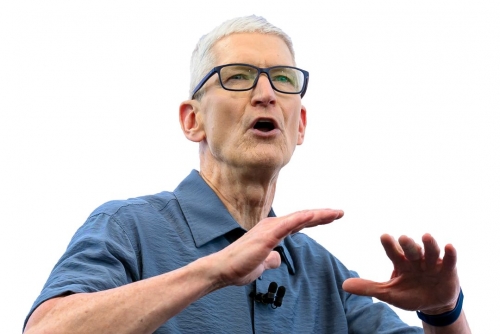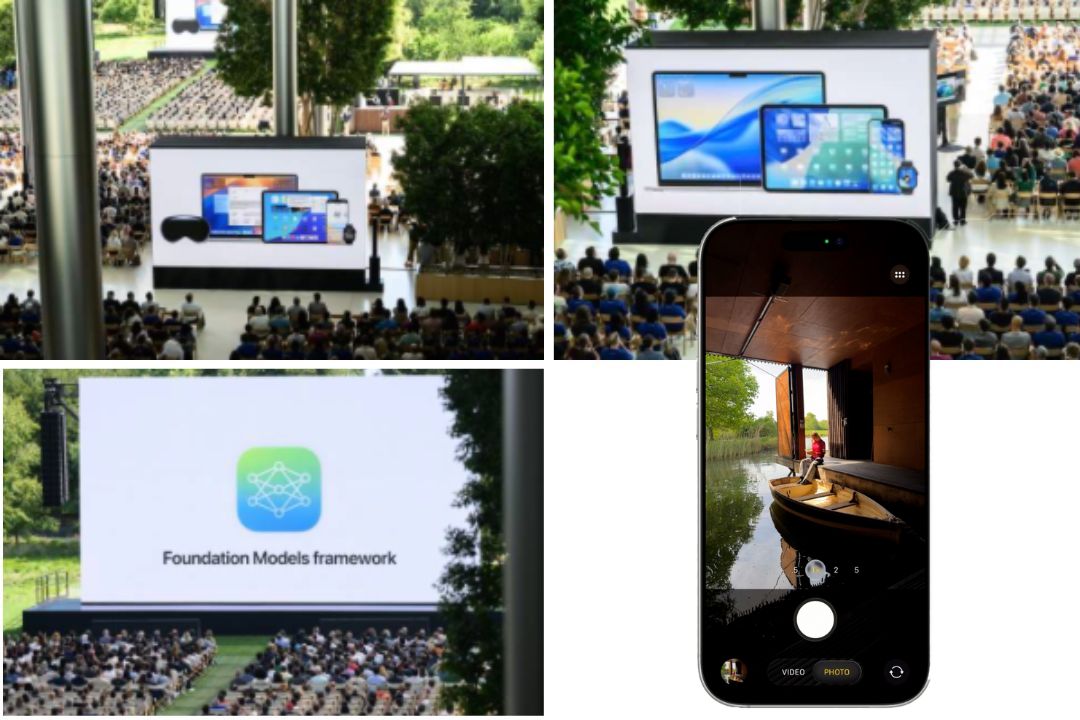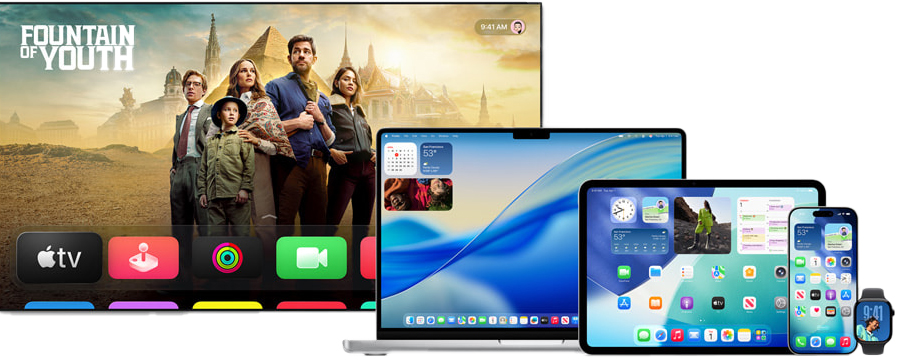Apple plays it safe on AI despite Wall Street pressure
AFP | Cupertino
Email : editor@newsofbahrain.com
Apple on Monday remained on its cautious path to embracing generative AI even as rivals race ahead with the technology and Wall Street expresses doubts over its strategy.
The pressure was on Apple not to disappoint at its annual Worldwide Developers Conference (WWDC) a year after the iPhone juggernaut made a promise it failed to keep -- to improve its Siri voice assistant with generative AI.
The annual WWDC is addressed to developers who build apps and tools to run on the company's products. Despite last year's disappointment, Apple insisted on Monday it was still very much in the AI race, announcing incremental updates to its Apple Intelligence software, including the ability for app makers to directly access a device's AI capabilities.
This would allow users to engage with apps using generative AI while offline, letting them interact ChatGPT-style with a hiking app, for example, while in remote areas without a connection.
Apple CEO Tim Cook briefly mentioned that Siri's AI makeover was still under development and "needed more time to meet our high quality bar," which includes Apple's standards on privacy and data security.
"We are making progress, and we look forward to getting these features into customers' hands," he added.
For Gadjo Sevilla, senior analyst for Emarketer, "the delays to Apple's in-house AI efforts will continue to draw scrutiny."
"Especially since rivals like Google and Samsung are moving ahead by introducing new on-device AI capabilities, or partnering with AI startups like Perplexity (in Samsung's case) to provide users with AI features," he added.
The biggest announcement at the event was the renaming of Apple's operating systems so that releases better match their release year.
The next operating system will be iOS 26 and will be available across all of Apple's devices -- including the Mac, Watch and Vision Pro headset -- in the fall, in time for the likely release of the next iPhone 17.
Today, Apple's operating systems have vastly different nomenclatures across devices, including the current iOS 18 for the iPhone or macOS 15 for Mac computers.
Apple also announced that the new operating system will be the first major iOS redesign since 2013, calling the new look "Liquid Glass."
Wall Street divided
The relationship between Apple and app-making developers has been strained in recent years, with developers chafing at the iPhone maker's high fees for getting access to the App Store.
A marathon lawsuit by Fortnite maker Epic Games ended with Apple being ordered to allow outside payment systems to be used in the US App Store.
Adding to doubts about Apple's direction is the fact that the legendary designer behind the iPhone, Jony Ive, has joined with ChatGPT maker OpenAI to create a potential rival device for engaging with AI.
Apple also has to deal with tariffs imposed by US President Donald Trump in his trade war with China, a key market for sales growth and the place where most iPhones are manufactured.
Trump has also threatened to hit Apple with tariffs if iPhone production wasn't moved to the US, a change which analysts say would be impossible given the costs and capabilities required.
Wall Street analysts remain divided on Apple's prospects, with the stock down about 17 percent since the start of the year, wiping over $600 billion from its market value and far outshone by its Big Tech rivals.
While some analysts remain optimistic about Apple's longterm AI monetization potential, others worry the company's cautious approach may prove costly in the longer term.
WWDC "was void of any major Apple Intelligence progress as Cupertino is playing it safe and close to the vest after the missteps last year," said Dan Ives of Wedbush Securities.
"We have a high level of confidence Apple can get this right, but they have a tight window to figure this out," he added.
New operating system will be the first major iOS redesign since 2013
“LIQUID GLASS”
Apple is rolling out a new “Liquid Glass” design language across its software, bringing sleek translucence and a glass-like shine to app interfaces.
Inspired by visionOS on the Vision Pro augmented reality device, the design adapts to light and dark modes and reacts dynamically to movement using real-time rendering.
The new design will be implemented in buttons, sliders, media controls and larger elements such as tab bars and sidebars, along with matching redesigned toolbars and navigation.
Apple is releasing updated Application Programming Interfaces so that developers can begin adapting their apps ahead of the new design rollout later this year.
OPERATING SYSTEMS
This year’s major iOS release would have originally been called iOS 19, following the usual sequence after iOS 18.
However, Apple is now changing its naming convention: future iOS versions will be numbered based on the year following their release—similar to how car manufacturers name new models.
Several parts of the operating systems are getting a major visual overhaul as part of the redesign.
The Phone app now includes call screening, allowing it to answer calls or wait on hold for you. The Messages app is also getting updates that include customizable chat backgrounds.
Apple also said it would add generative AI to its Xcode coding tools that can help developers write code, test it and resolve errors. The company said it would add other coding models such as ChatGPT to Xcode.
APPLE INTELLIGENCE
New additions to the operating system include Live Translation, which uses on-device AI models to translate conversations in real time, in text messages, phone calls or FaceTime.
Apple Pay is also getting Apple Intelligence integration, enabling it to track orders even for purchases made outside Apple Pay.
Meanwhile, Image Playground is getting a boost with a new feature that allows users to generate images with the help of OpenAI’s ChatGPT.
Apple will now allow developers to tap into its on-device foundational model for their own apps. Through the new Foundation Models framework, developers can build intelligent, privacy-focused experiences that work offline too.
VISUAL INTELLIGENCE
Apple will also let users learn more about what’s on their iPhone screens via Visual Intelligence.
Users can search across Google, Etsy and other supported apps to find visually similar images or products. If the tool detects that you’re viewing an event, iOS 26 will suggest adding it to your calendar.
This feature will be accessible using the same button combination used to take a screenshot on an iPhone.
Related Posts



